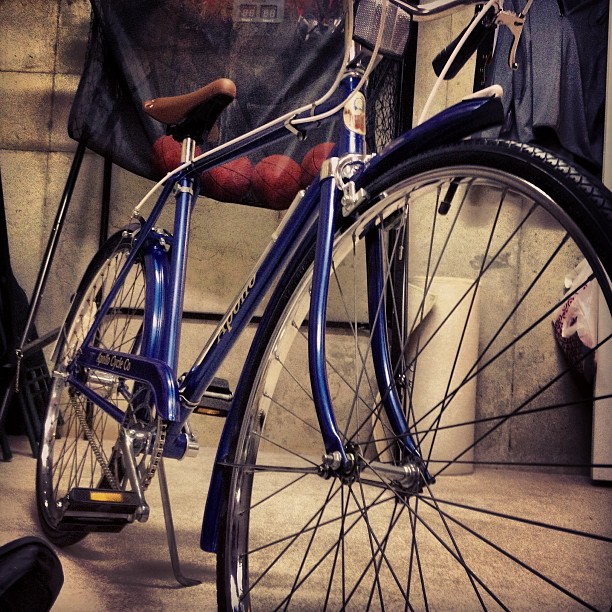Work That Isn't Work
Malcom Gladwell has the 10,000 hour mastery rule to be an expert at something. Well, I think that's the rule. I've never actually read one of his books. Anyway, the mentality that usually follows up with that rule is pouring yourself into one task full force. Doing it repeatedly, working hard and endlessly to get good. I believe in that. If you want to get good at something, you're going to have to do that thing more (or maybe, more efficiently) than your competitors. It's a lesson I learned from running cross country and track throughout high school and college. There was always some weird coincidence that the more miles I ran, the faster I became.
There is a benefit to doing work that isn't your real work. Something that takes time, effort and has an end goal of some kind but uses a completely different set of brain muscles than what you do in your "day job." During cross country training, I would often go out and play ultimate frisbee or work on video projects. Ultimate frisbee was fun and kept me in shape and the video projects were a good way to test my patience and willpower to deal with unforseen circumstances and finish editing a project under a deadline.
What does that look like now?
During the day (and even nights and weekends) I work in the sphere of marketing and PR. I read everything I can on the subject, help clients solve problems and try to find as much "win space" as I can in digital. My brain can only do those things for so long.
Lately, I've been taking Sunday afternoon trips up to my grandparents' house to work on a bike. I've never really been into biking in the past. However, since he's retired, my grandfather has gotten really into working on restoring vintage bikes. It seemed like a neat hobby and seeing that I don't currently own a bike of any kind, thought it may be nice to learn how to restore one from him.
Tinkering My Way to Inspiration
My bike started out as a rusted out, dirty old frame. The cogs, brakes, and handlebars were dull and dirty. The frame itself had ground-in dirt clumps in its gears and in the crevices of the frame. It was a piece of junk. However, over time, I've been able to polish up a few of the pieces to its original glossy chrome finish. This weekend I spent three hours just sanding the frame. Sanding. It's a mindless task that I still haven't quite finished.
Here's the cool thing though. This is a project that I have to see from start to finish. I have an end goal in mind (functionally and aesthetically). The days I work I get to tinker on different gears, widgets, tools and random pieces of scrap metal. As I sand or polish parts, I see my results almost instantly. Sure, they aren't the finished results but they're signs of progress being made.
This downtime has been a great break for my brain. I'm still "working" but freeing my mind from my day job. As a result, I come into the office refreshed, ready to go and look forward to working on the next piece of my bike project the following weekend.
I've talked about how reading fiction is good for your career. I think finding other work and hobbies could be just as beneficial. Working different parts of your brain definitely could have a positive long-term effect on your creative thinking skills (and prevent burnout).
How about you? What types of "work" do you like to do when you aren't working?


